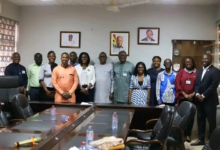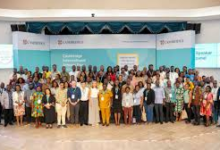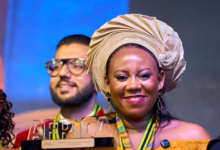‘Redesign STEM courses in tertiary, secondary schools’

The President of the Ghana Institution of Engineers, Mr Kwabena Bempong, has stressed the need for a redesigning of Science, Technology, Engineering and Mathematics (STEM) courses in the tertiary and secondary levels, to suit the country’s industrial needs.
According to him, there was a gap in the STEM education, and a change, would help improve upon student’s knowledge in science and technology.

Mr Bempong was speaking at the 13th College of Basic and Applied Sciences Public Lecture in Accra on Thursday under the topic “The contribution of Ghanaian Engineers to Development; A case study of Pokuase Interchange.”
He emphasised that students at the pre-tertiary level must be given the opportunity to be exposed to more practical courses to become innovative in their fields of work.
“Students must not be taught to write verbatim but must be allowed to express their ideas based upon their understanding of the concept. They must be given the opportunity to think and innovate,” Mr Bempong said.
He said teaching strategies at the tertiary level must be enhanced and also ensure that the curriculum comply with the courses.
“There’s the need to add new diversion by employing technology and science of education. There is a need for that paradigm shift and that would help ensure that these students do not just come, write note and they’re good to go,” Mr Bempong stressed.
He said that, over the past 70 years, Ghanaian engineers had made impact in the country, Africa and the world at large, adding “Many engineers are spearheading Science, Technology, Engineering, Health Sciences, Arts, Business and Innovation throughout the globe.”
Mr Bempong said “Some are inventors with a number of patents to their names. I dare say that without STEM, Ghana is going nowhere because out of STEM, all other disciplines and vocations branch out, flourish and take form”.
He revealed that the Pokuase 4-tier stacked interchange was designed and supervised by Ghanaian engineers, adding “we should believe in ourselves and help develop human capital rather than entrusting everything in the hands of foreigners.”
Mr Bempong called on the Ministry of Roads and Highways, the Ghana Highway Authority, Departments of Urban and Feeder Roads and the Assemblies to ensure that roads were maintained and assets valued so that such infrastructure could last for long, to save the country money.
BY VIVIAN ARTHUR





